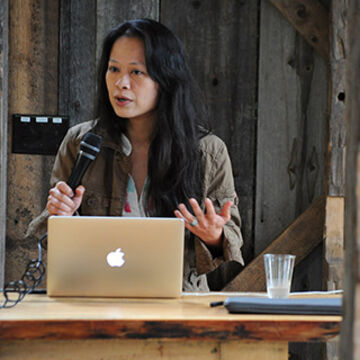

C. C. Ann Chen
Associate Professor, Adjunct
Contact
Bio
BA, 1994, University of Maryland, College Park, MD; MFA, 2002, School of the Art Institute of Chicago, Chicago, IL. Exhibitions: Slow Gallery, Chicago; The Bike Room, Chicago; Glass Curtain Gallery, Columbia College, Chicago MOCAD, Detroit, MI; Beverly Art Center, Chicago; emerge Art Fair, Washington, DC; Hyde Park Art Center, Chicago; Heaven Gallery, Chicago. Bibliography: New American Paintings No. 83; Newcity; Artslant. Awards: Midwestern Voices and Visions Award, Alliance of Artists Communities and The Joyce Foundation.